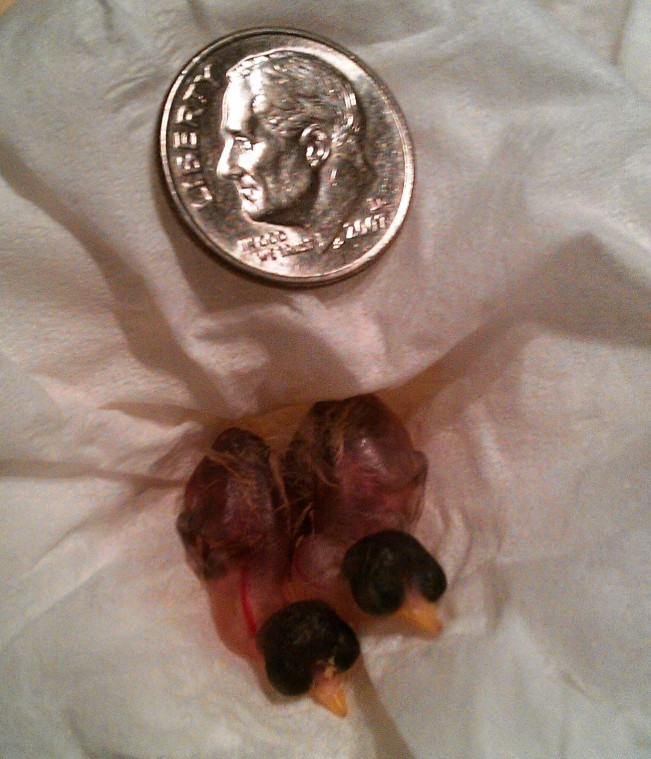A Wildlife Education and Rehabilitation Center volunteer just picked up the first baby birds of the season. The tiny-tiny hummingbirds (two of which will fit on a dime) are just one day old and came in with egg shell still stuck to their backs. Their mother had flown into a home improvement store, become trapped, and could not return to care for them in their nest in the store’s garden center. The extremely fragile babies now require regular feedings of a special formula every 15 minutes for several weeks before they can eat on their own, fly and then be released—IF they survive the first couple of days of their lives.
Though these hummers were orphaned under different circumstances, every year W.E.R.C. and other wildlife rehabilitation facilities across the nation receive baby birds and tree squirrels because they have lost their nests or been injured due to yard and home maintenance. Even trimming trees around the nests can be detrimental, not only because of the noise and human activity can scare away the parents, but because the nest’s covering may be lost, exposing the babies to predators and the hot sun, wind, and inclement weather. Nesting season is typically March-August. Wait until the babies have fledged and flown away before you begin tree trimming, construction work, hauling, yard and lawn maintenance, or roofing. And don’t forget to check the grass or fields before you begin mowing, roto-tilling, or weed-whacking-momma rabbit often hides her baby bunnies in the tall grass.
If a nest does inadvertently fall down, try to carefully place it in another part of the tree and watch to see if the parent returns to care for the young. If the parent doesn’t come back to care for them within 4 hours, call W.E.R.C. or your nearest licensed wildlife rehabilitator for advice.
IT IS AGAINST STATE AND FEDERAL LAWS to remove, destroy or disturb most nesting wild birds, their nests, or their eggs. IT IS NOT LEGAL to destroy the nests of tree squirrels. Special government permits are required to remove occupied nests and are only justified for a strongly compelling reason, for example, when the location creates a health hazard to humans. These laws apply to homeowners, contractors, and businesses alike and violators may be prosecuted and be assessed stiff fines.










